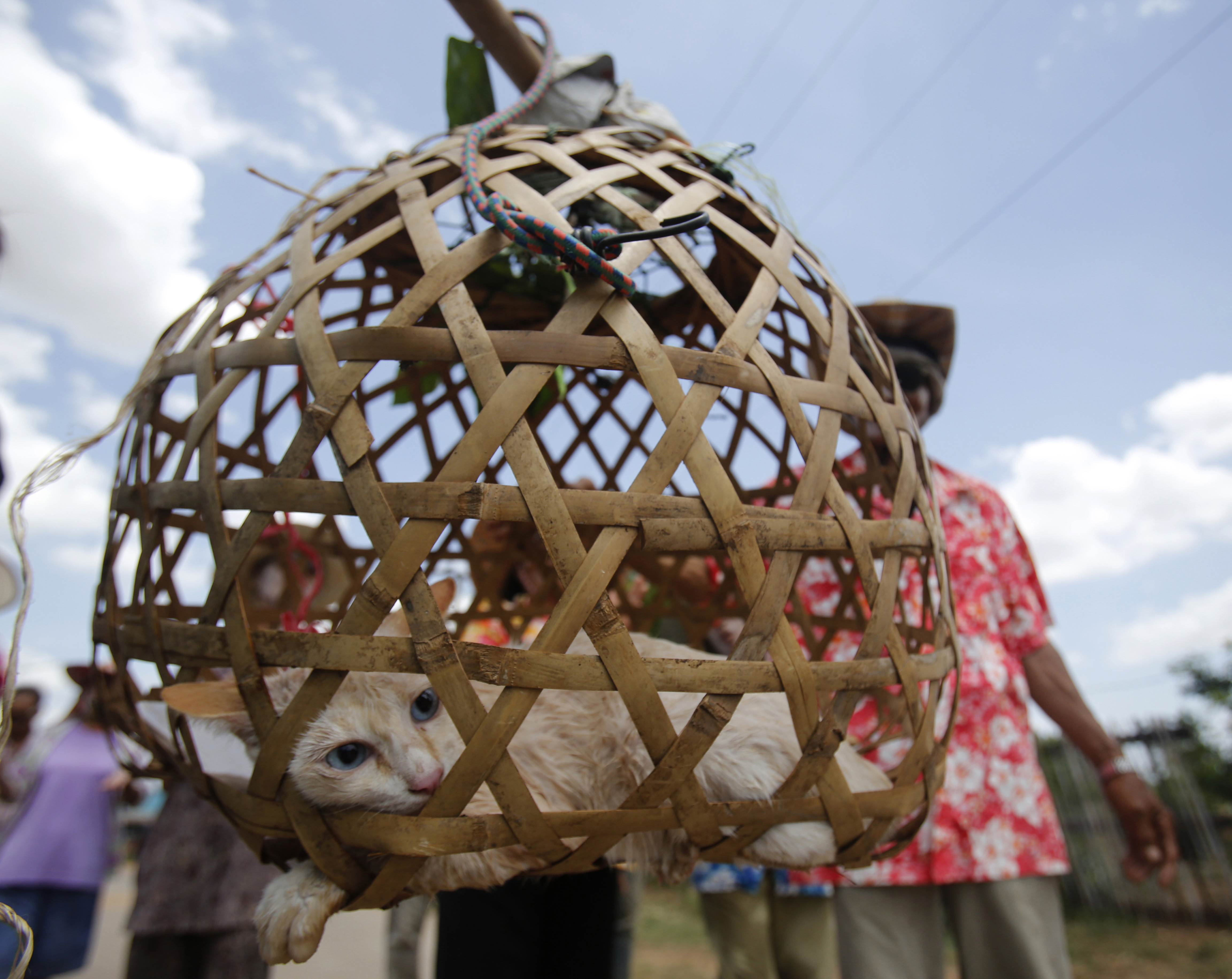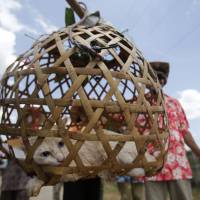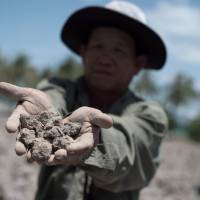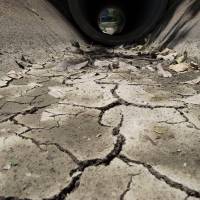Rice farmer Boontham Chei-pa switches on a water pump in the evenings to irrigate his parched field from a canal in Thailand's central province of Suphanburi. The soil is hardly moistened before the motor is switched off.
Soldiers patrol the canal to stop unauthorized pumping — part of water rationing in almost a third of Thailand's 76 provinces as an El Nino-fueled drought dries the land. Without irrigation, Boontham said he will lose the more than 100,000 baht ($2,950) he spent sowing the crop.
"My entire investment for this crop could be gone with the wind," the 66-year-old said. "I'm stressed out and don't know what to do."
For more than a decade, Thailand's rice farmers were cushioned by government subsidies and minimum prices that were sometimes double the market rate. The support won rural votes for former Prime Ministers Thaksin Shinawatra and his sister, Yingluck. They also led to a 20 percent jump in rice production and a record stockpile of 17.8 million metric tons that the current military-backed government is struggling to sell.
Since the May 2014 coup, the junta has been trying to rein in farm subsidies without stirring up protests from farmers who make up at least half the electorate. Rural regions that were a key support base for the Shinawatras are among areas most affected by the drought, said Ambika Ahuja, a London-based analyst with political-risk adviser Eurasia Group.
"From a political perspective, a prolonged period of drought in rice-growing areas will increase anti-military sentiment," Ambika said in an e-mail. "The situation is unlikely to become destabilizing in the near term without additional catalysts. The government has been adept at clamping down on dissent, but it's also treading carefully to avoid provocations."
Declining farm income may sap household consumption that accounts for about half of Southeast Asia's second-largest economy. Dry weather could also raise food prices, possibly making the central bank reluctant to cut interest rates after two unexpected reductions earlier this year, said Santitarn Sathirathai, a Singapore-based economist at Credit Suisse Group AG.
"Farmers barely spend these days," said Pichet Noicharoen, a 54-year-old farmer in Chainat province, who also runs a shop selling food and drinks. "Daily sales from the shop have fallen by about half."
Yingluck Shinawatra has defended the decision to buy 885 billion baht of rice, arguing that the subsidy raised rural incomes and boosted the economy, while the Ministry of Finance estimates it caused 536 billion baht in government losses.
After the coup, Yingluck was retroactively impeached by the junta's legislature and banned from politics for five years for failing to halt the program. She also faces a charge of criminal negligence that could see her spend up to 10 years in prison.
"The rice subsidies have exacerbated the drought," said Jariya Sutthichaiya, deputy secretary general of the government's Office of Agricultural Economics. "They spurred plantings to a record, increasing the demand for water — and the problem intensifies with the El Nino reducing rainfall."
Thailand's key reservoirs have fallen to the lowest since 1987, and farmers in Suphanburi, Chainat and 20 other provinces have been warned to delay planting their main rice crop until the end of this month.
Even so, planted areas are increasing in the central plains, according to a June 23 report from the U.S. Embassy in Bangkok. Farmers may reap 26.5 million tons of rice from their main crop, 600,000 tons less than last year and the smallest harvest since 2011, the Office of Agricultural Economics estimates.
The main crop, accounting for about 70 percent of Thailand's annual rice production, is harvested from September to February. A second or dry-season crop is typically harvested from March to August.
The government has promoted a policy of better aligning rice production with soil conditions, water availability and demand, said Sansern Kaewkamnerd, a government spokesman.
"But farmers haven't adjusted," Sansern said. "Now they are facing a problem, they realize they needed to switch to other crops, especially to crops consuming less water, like corn for animal feed or green beans."
Encouraging diversification from rice is sensible, but won't succeed unless alternatives improve household incomes, said Thierry Facon, senior water management officer with the Food & Agriculture Organization in Bangkok.
"We used to plant green beans and sugar cane, but it didn't work," said Suthep Chamchan, a 62-year-old farmer, whose family has worked a 4.5-hectare (12-acre) plot in Suphanburi province for four generations. "Without water, what can we do?"
In farmer Boontham's district, three soldiers have been deployed to inspect the Makhamtao Uthong canal, where hundreds of pumps sit ready to siphon water onto parched fields. Farmers breaching the restrictions are given verbal warnings and there haven't been any clashes so far, one soldier said.
"I don't think they will face protests for the time being," said Kongkiat Opaswongkarn, chief executive officer of Bangkok-based Asia Plus Securities PLC, in a June 26 interview. "If the situation is critical to the point where the farmers are about to protest, they may come up with some subsidization program just to cool them down."
That time may be approaching, said U-thit Saengphu, a rice- grower in Chainat province.
"The government hasn't provided much help," the 57-year- old said. "If things get worse, I may have to sell parts of my land to earn some money. I'd like the government to know I'm in deep trouble."






